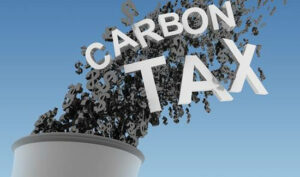Carbon tax: cost-benefit analysis
- PostedPublished 27 April 2014
 AUSTRALIA’S Clean Energy Regulator has released data on the carbon tax liabilities of companies affected by the carbon tax, with the combined bill totalling more than $4 billion in the financial year 2012-13.
AUSTRALIA’S Clean Energy Regulator has released data on the carbon tax liabilities of companies affected by the carbon tax, with the combined bill totalling more than $4 billion in the financial year 2012-13.
That’s a lot of money for a 0.1 per cent reduction in greenhouse gas emissions, from 546.2 million tonnes in the financial year before the carbon tax was introduced to 545.9 million tonnes post carbon tax.
In fact the carbon tax bill has been calculated as being much higher, as much as $7.6 billion according to Environment Minister Greg Hunt, who includes the $1 billion raised through reduced fuels tax credits plus charges on the aviation and refrigeration industries.
The rest can be attributed to more than 104.2 million free carbon units – each valued at $23 – issued under the Jobs and Competitiveness Program for 2012–13.
According to Australia’s National Greenhouse Gas Inventory for the financial year in question, there was a decline in electricity emissions, with part of that due to “changes in the generation mix,” indicating a shift toward renewable energy such as solar – a positive trend.
However the document also notes a lower demand for electricity, indicating reduced economic activity. Was the carbon tax to blame for this? Were businesses occupied with filling in carbon tax paperwork instead of making money?
Of course the Carbon Tax, which looks to be short-lived, had long-term goals and the large corporations responsible for the bulk of emissions are traditionally slow to make changes of the magnitude required to significantly slash greenhouse gas output.
Who knows if the picture would have been different in five years’ time?
In any case, Australia has the dubious honour of being eighth in the list of world’s biggest greenhouse gas polluters per capita when land use change and forestry are taken into account, according to the World Resources Institute.
The top ten, in ascending order, are Kuwait, Belize, Brunei, Singapore, Qatar, Trinidad & Tobago, Equitoreal Guinea, Australia, Oman and Botswana.
When it comes to Western World nations, the tiny European state of Luxembourg places 14th, the USA appears at 17th, Canada is 19th and New Zealand is 24th.
Something clearly has to be done but one thing is clear: penalising the entire refrigerant industry for using high global warming potential gases for which stewardship, recovery, recycling and safe destruction practices exist is like including the cost of a speeding ticket in the price of a vehicle just in case the driver goes too fast.
The carbon tax caused the cost of some refrigerants to increase by up to nine times the imported cost, paving the way for cowboy operators offering cheap a “regas” and filling systems with unsuitable, flammable hydrocarbons – probably illegally venting R134a to do damage to the atmosphere in the process.
And that, above all, is why VASA supports the carbon tax repeal.
- CategoriesIn Latest News

